Of all the decisions to make when designing a kitchen, choosing the right countertop is arguably one of the most important. As the centerpiece of the room, the countertop not only affects the overall aesthetic but also plays a crucial role in the kitchen’s functionality. Naturally, we love thinking about aesthetics only but there’s a crazy amount of things you never knew about different surface types! With so many different options available, from granite and marble to quartz and butcher block, it can be overwhelming to know which surface to choose. I’m excited to share my insights on the pros and cons of each option that goes over more than just how pretty it is! Let’s dive into some nitty-gritty details of each material and highlight their unique benefits and potential drawbacks to help you make an informed decision for your own kitchen.
1. Marble
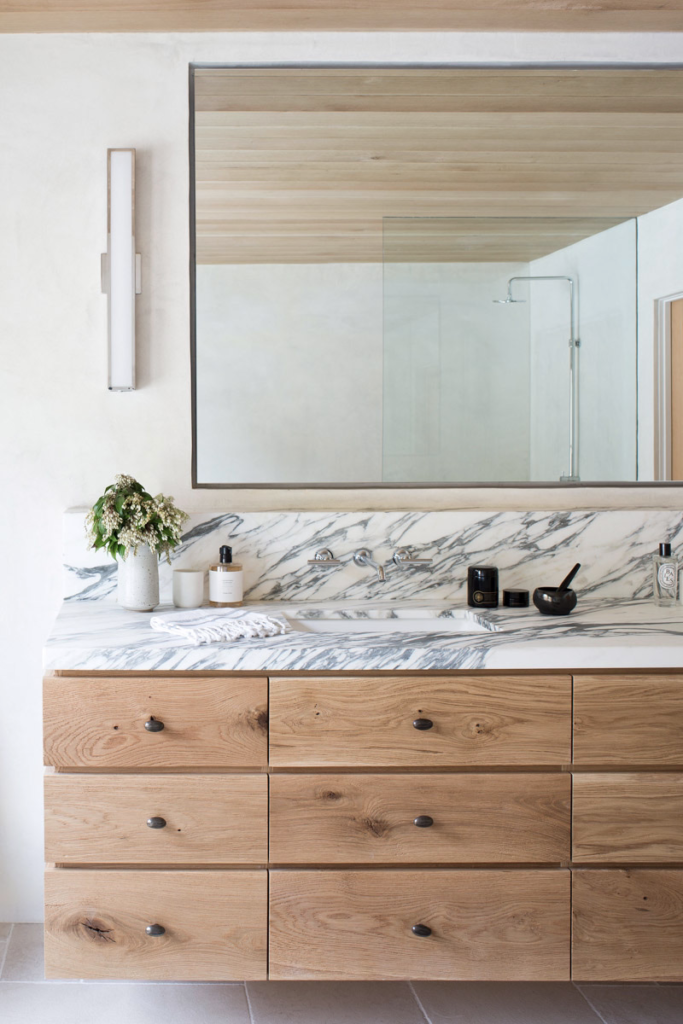
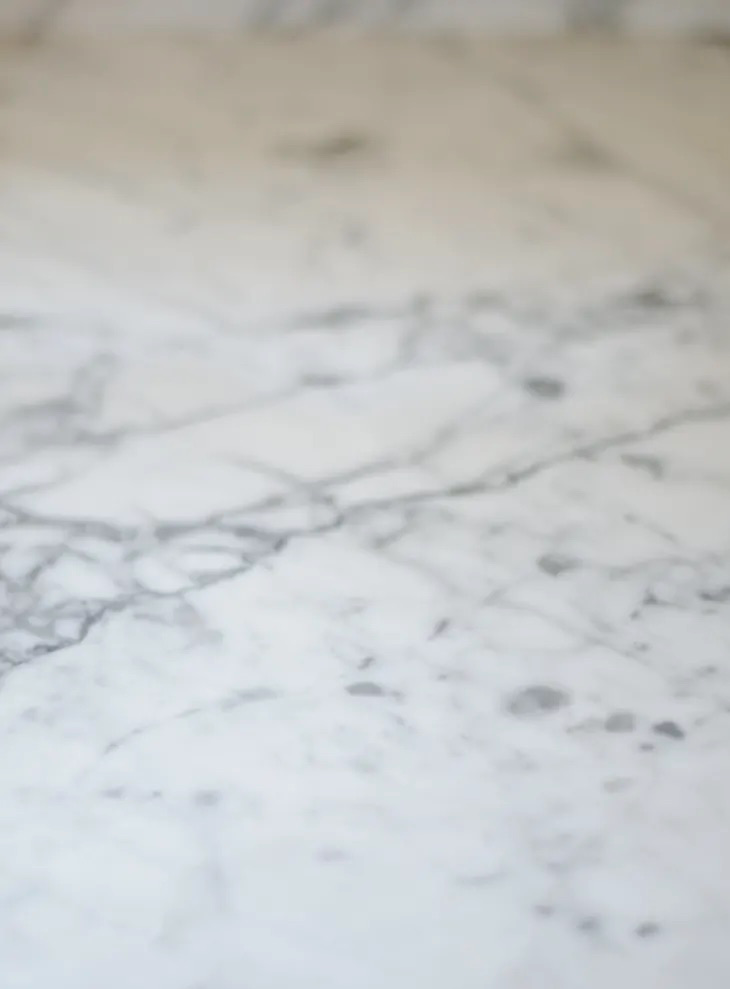
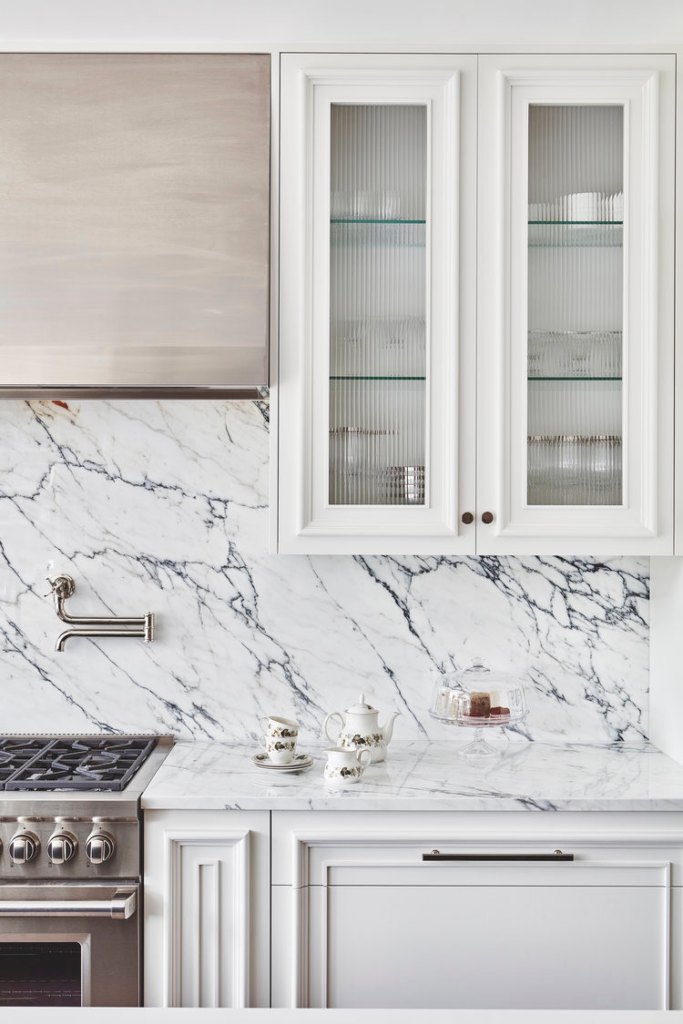
Pros:
Marble countertops are a popular choice in kitchens for several reasons. First and foremost, they provide a chic look that can add a touch of luxury to your kitchen. Additionally, marble is a highly durable and heat-resistant material that can withstand the craziness of a busy kitchen. It is also a naturally cool material, which helps if you’re constantly turnin’ up the heat in the kitchen 😉 Finally, marble is relatively easy to clean and maintain, and it is highly resistant to scratches and chips.
Cons:
Despite their many advantages, there are also some downsides to consider before choosing marble countertops. One of the biggest concerns with marble is that it is a porous (think sponge) material, which means it’s prone to staining and etching. It can soak up red wine faster than I can. If you spill anything with citrus or vinegar, you better be prepared to wipe it up immediately to avoid creating too much damage. Coasters and cutting boards will be your new best friends. Another potential issue with marble is that it can be prone to chipping and scratching, which can detract from its overall appearance over time. Finally, marble is a relatively expensive material compared to other countertop options, which can make it a less appealing choice for those on a tight budget.
2. Granite
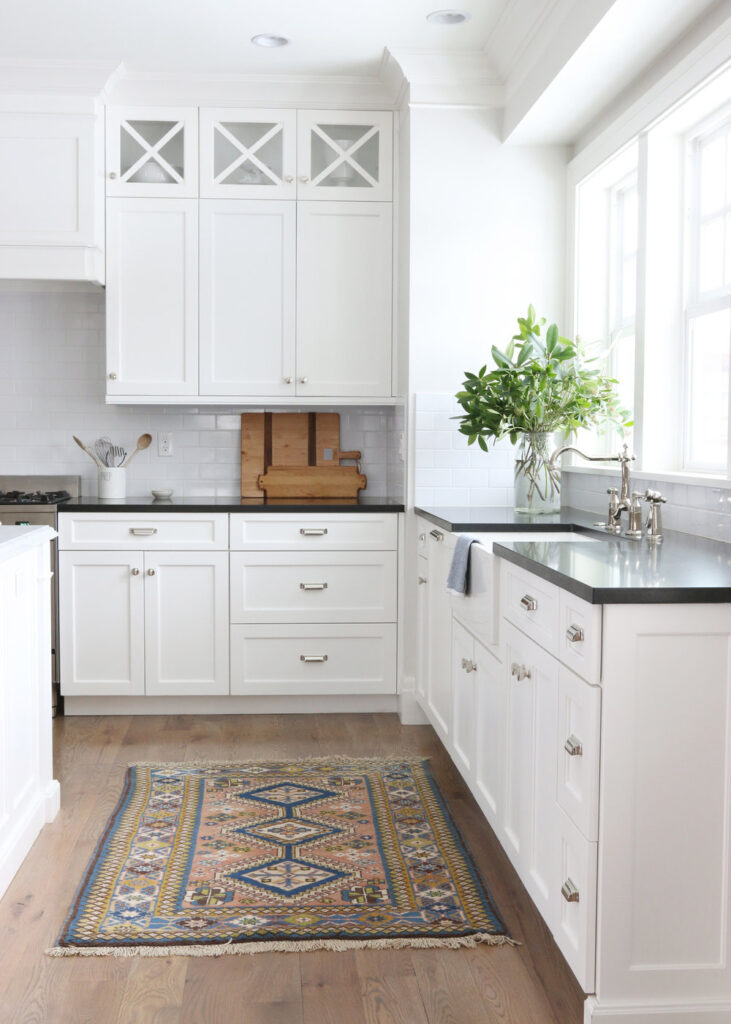
Pros
One thing I adore about granite is how unique it is! Each slab of granite is unique and has its own distinct pattern and color. This can add a touch of individuality to your kitchen and make it stand out. Granite is also very durable and can handle all the hot pans and muffin trays you’ve got. It’s incredibly long-lasting and doesn’t chip or ding easily so it will look great for years to come!
Cons
The biggest con to granite I can think of is installation. Granite is HEAVY and you will absolutely need to have this done professionally. Remodeling with granite is not a DIY project. Similarly to marble, granite can also soak up stains easily so washing it immediately after a spill is crucial to keep it looking its best. You can also seal granite regularly to avoid any issues.
3. Quartz
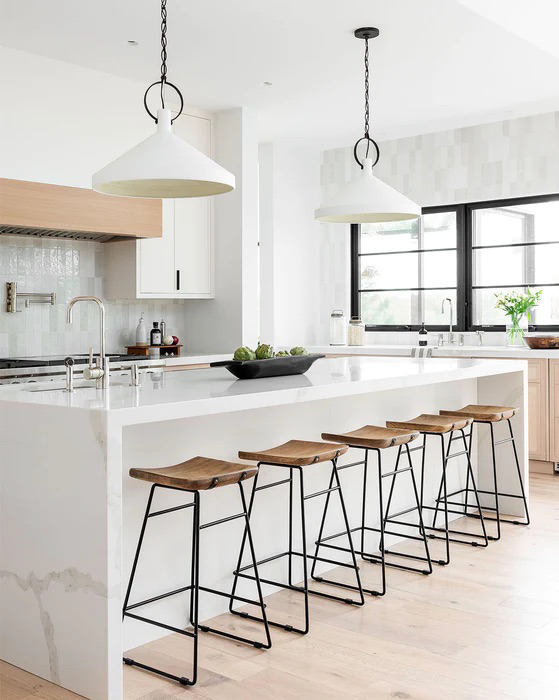
Pros
The first countertop material that doesn’t soak up stains is quartz! Quartz is nonporous, it’s easy to clean, and you don’t have to seal it! It’s incredibly low-maintenance so if you’re a low upkeep kinda homeowner, this kitchen countertop surface is for you! While quartz is a more modern design choice it’s so versatile that it generally works with all decor styles.
Cons
If your go-to cooking style is to take a hot pan out of the oven and lay it down right on your countertop, please DON’T get Quartz. It is not heat resistant and you risk damaging it by doing this. This kitchen countertop surface is also fairly pricey so if you’re ballin’ on a budget you may want to look into a different option.
4. Quartzite
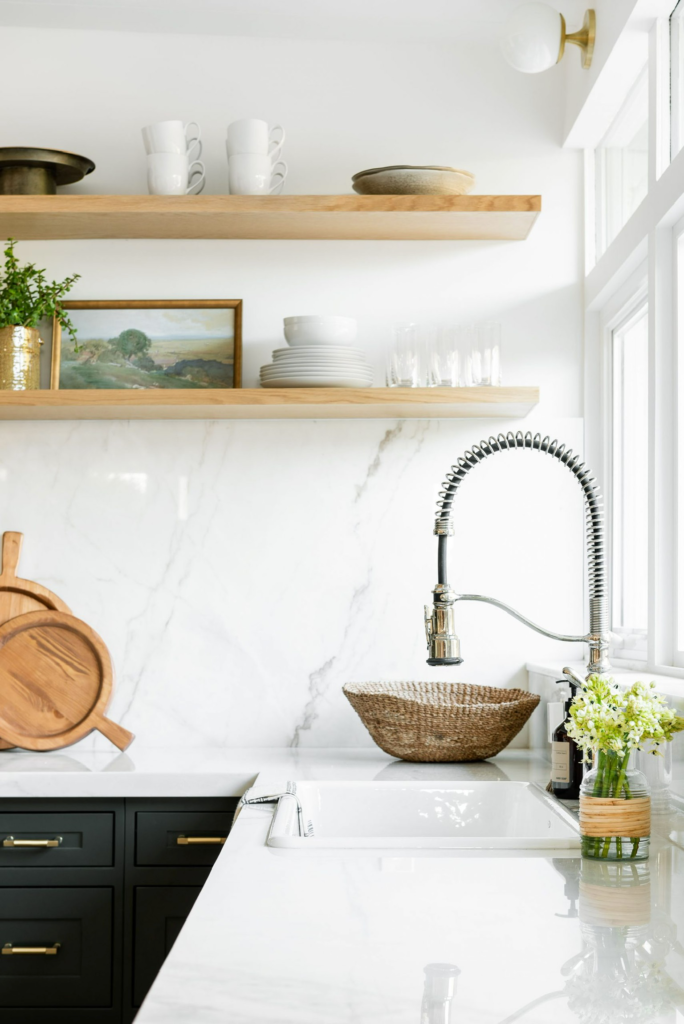
Now I know this sounds like a Quartz spin-off, but the two materials are very different. Quartz countertops are made from engineered quartz, which is a man-made material composed of natural quartz minerals and resins. Quartzite, on the other hand, is a natural stone that is formed from sandstone and quartz under high heat and pressure. Interesting huh!?
Pros
Like other natural stones, quartzite is highly durable and resistant to heat and scratches which is a huge benefit for accessibility. It also has a unique, natural pattern and coloration that adds a little pizzazz to your kitchen.
Cons
Unlike engineered quartz, quartzite is a porous material that can be prone to staining and requires regular sealing and maintenance to keep it in good condition.
5. Concrete
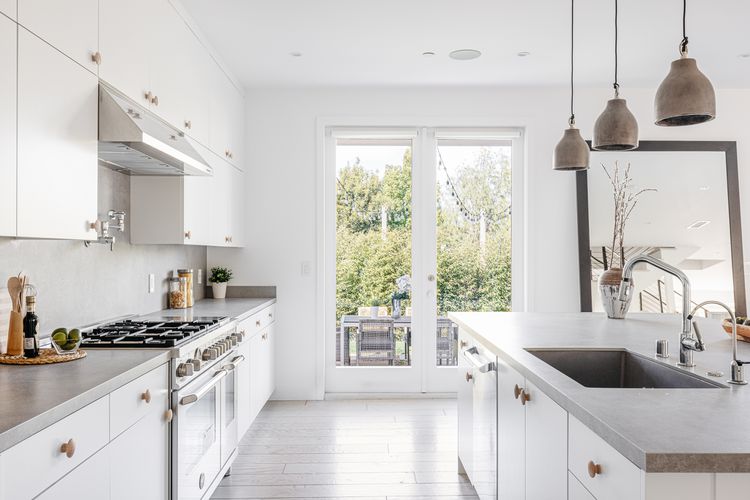
Pros
Concrete countertops simply scream “trendy”. Concrete provides you with the ability to create unique shapes, sizes, and colors. It can also be polished, textured, or stained to create a variety of finishes that suit your ideal kitchen decor. Concrete countertops can also take a lot of wear and tear and don’t require a lot of upkeep. Throw some piping hot cake pans or a dutch oven straight out of the cooker and it’ll be fine. The best part about concrete is it’s a very affordable option!
Cons
I keep using the word porous only because that’s exactly what concrete is! Concrete loves soaking up stains unfortunately so be very careful with that. Another con is concrete is heckin’ heavy. You will absolutely need a support structure of some sort and it will need to be installed professionally. Over time, without a support structure, it will start to sag and damage the cabinets underneath.
6. Porcelain
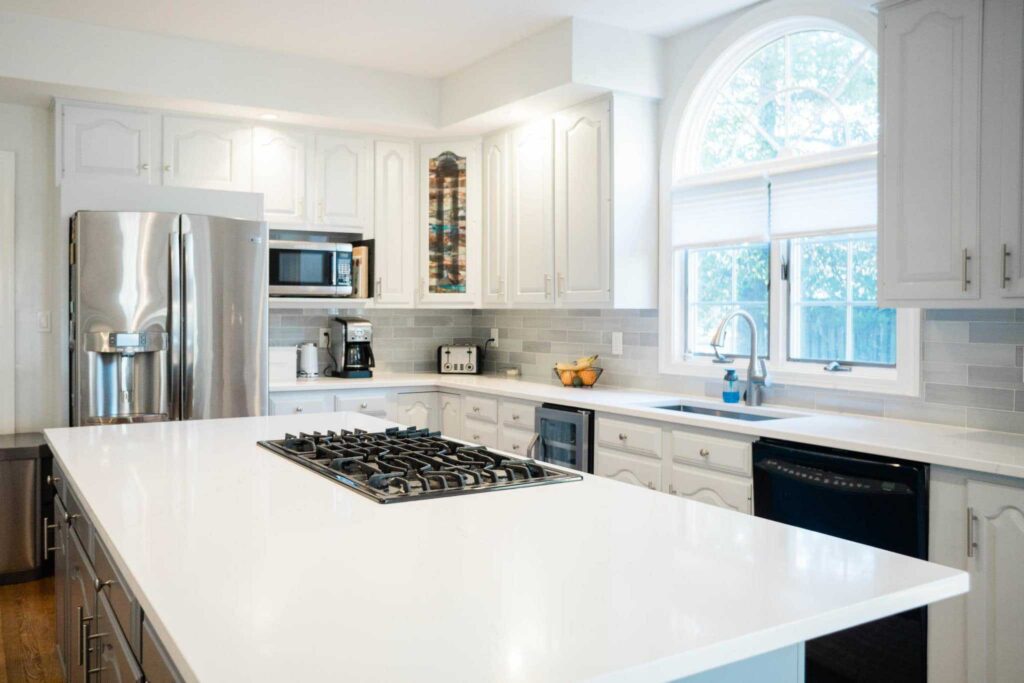
Pros
Porcelain is so sleek, so chic, and overall just provides a beautiful aesthetic vibe to your kitchen. It’s very easy to clean and maintain and isn’t prone to staining like some of those POROUS materials we’ve discussed. Porcelain is incredibly heat resistant as well, so it’s the ideal choice for the low-maintenance folks out there.
Cons
This could very well break the bank. It’s one of the more expensive options for countertop surfaces out there. Another interesting thing about porcelain is while it is heat resistant, it’s very prone to heat shock. If it’s freezing in your home and you place a ridiculously hot pan on it, porcelain can simply *crack*. This is different than gradual heat damage as it happens instantly.
7. Butcher Block
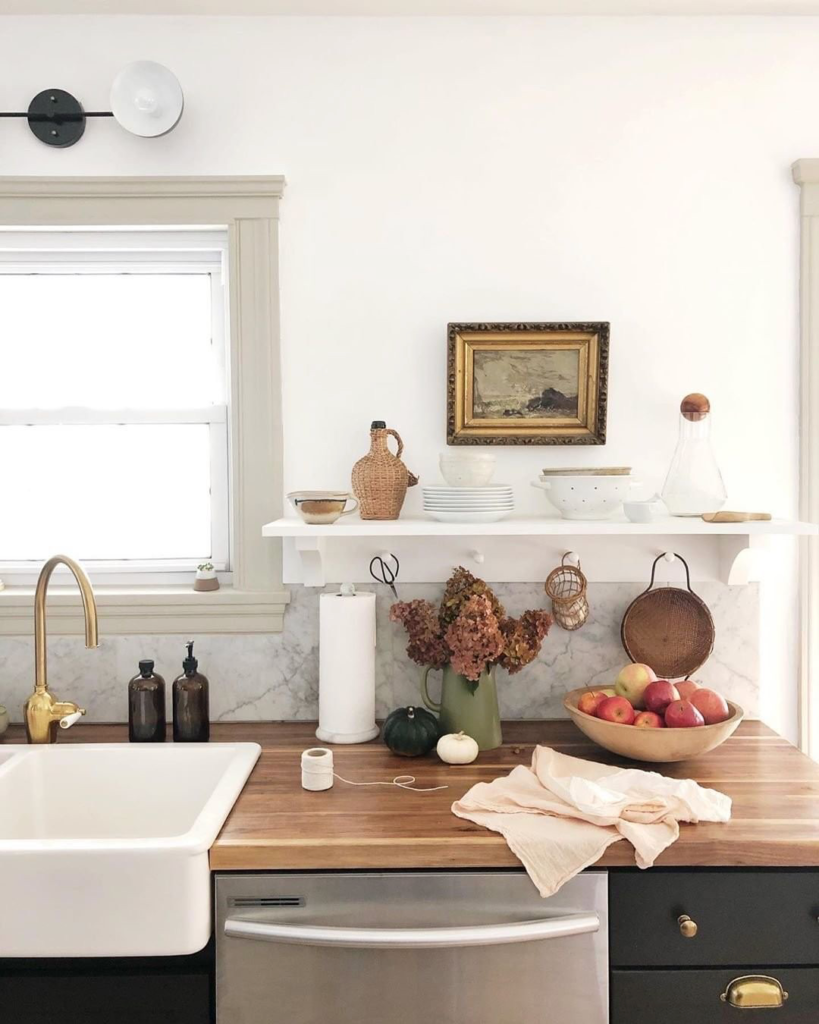
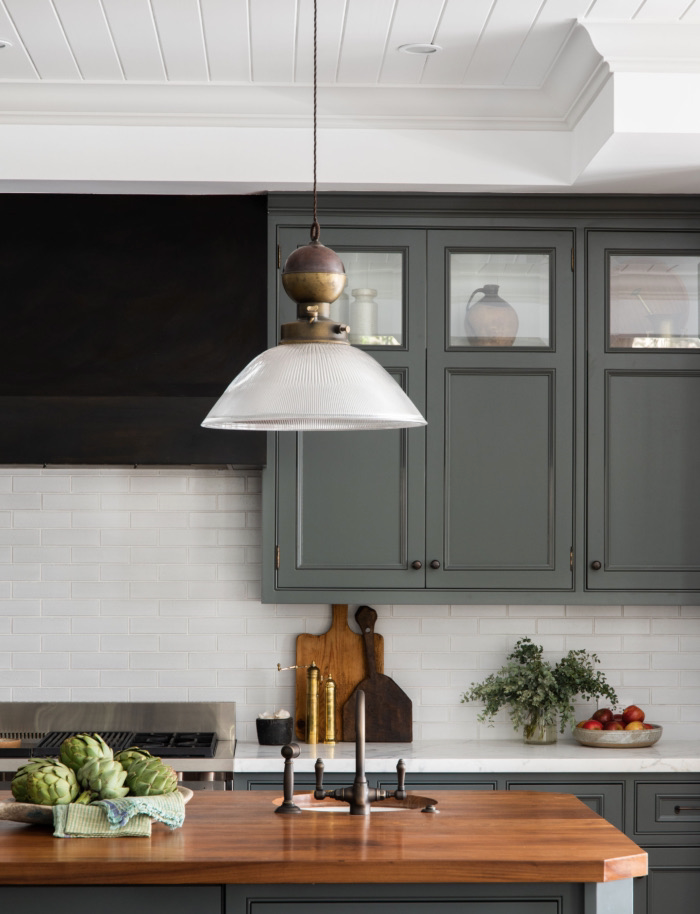
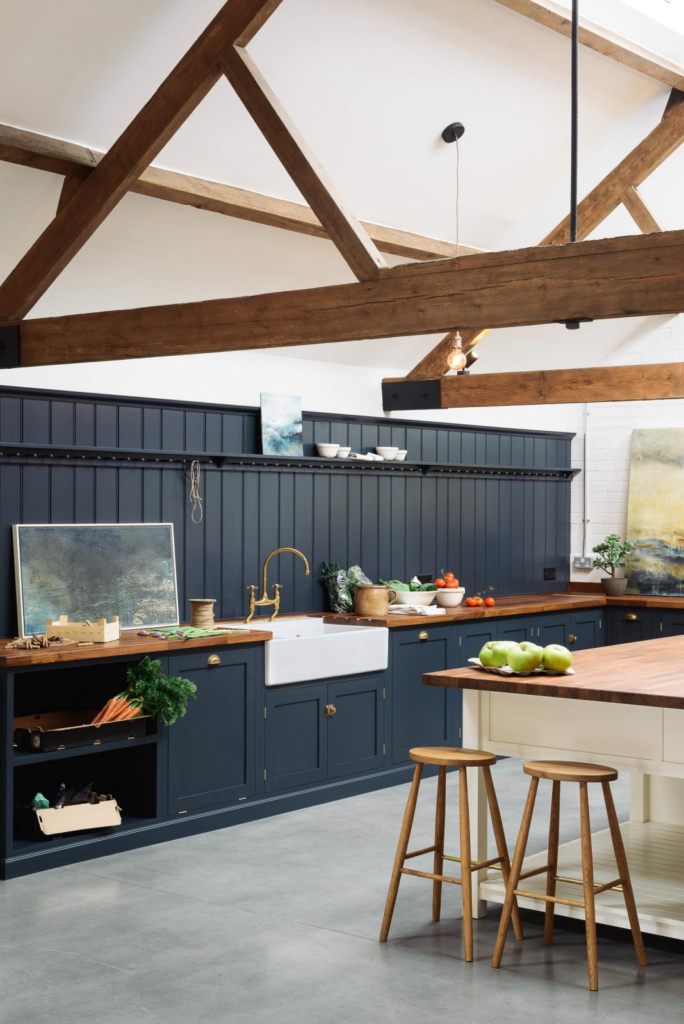
Pros
Butcher Block countertops provide that nostalgic and traditionally charming vibes. You will bring so much warmth into your kitchen with butcher block. It is also a relatively affordable option compared to other countertop materials, making it accessible for all! Butcher block is a versatile material that can be sanded, stained, or oiled to achieve a variety of finishes that suit any kitchen style. What’s really cool is you can sand down butcher block to remove any damage or scratches caused by knives
Cons
You have to oil and seal butcher block regularly to make sure it looks its best. This also helps cut down on bacterial growth as wood is susceptible to this. Wood is NOT heat resistant so you’re going to have to stock up on hot pads and trivets.
8. Soapstone
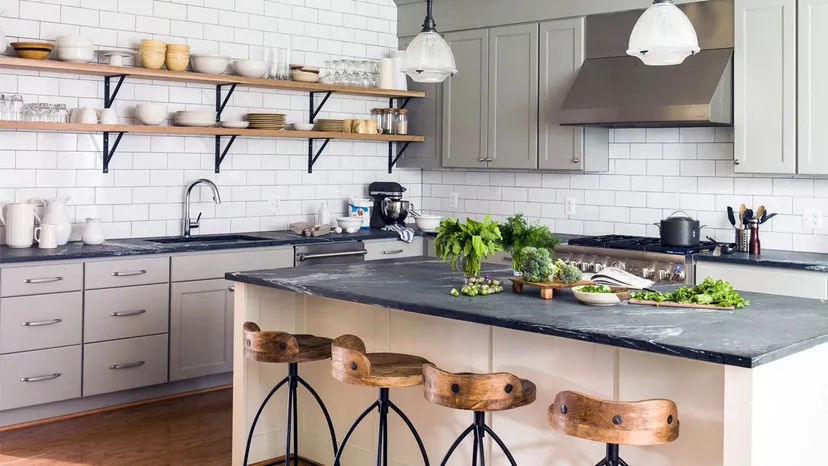
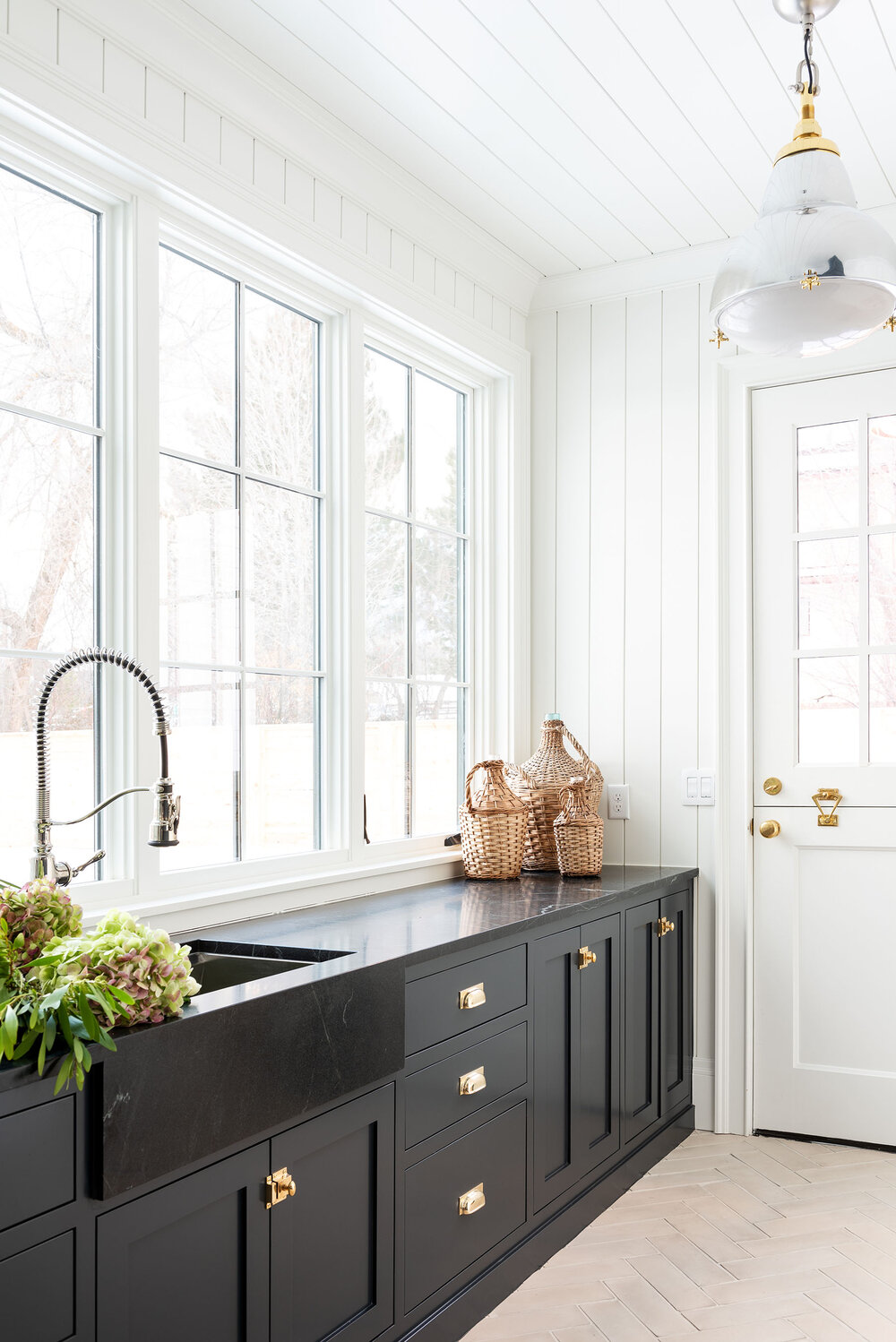
Pros
Soapstone is very customizable as it’s what’s called a “soft stone”. If you’re creating a custom kitchen and have a unique layout, soapstone is a good choice. Secondly, it’s a low-maintenance material that does not require sealing or special cleaners, making it an attractive option if you prefer a no-fuss kitchen.
Cons
Since this countertop surface is a soft stone, it’s prone to scratching and chipping should you drop anything on it. Additionally, soapstone can be pricey because of how heavy and dense the material is. Lastly, soapstone is a very unique stone and it’s difficult to match should you need to replace a damaged portion.
There you have it! I hope this helps you on your kitchen remodel or custom build journey! For more kitchen remodel tips read my blog on Five Kitchen Design Mistakes (and How to Avoid Them).




